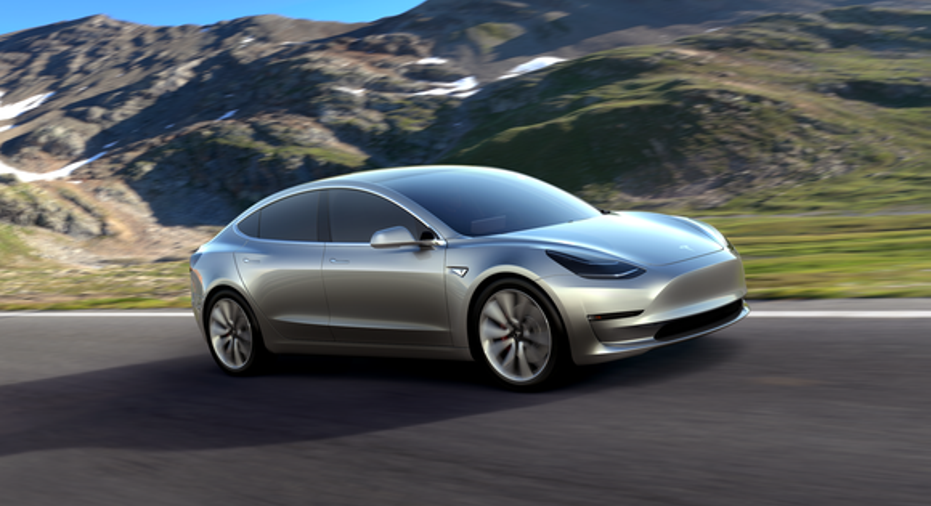Why the Market Likes Tesla's Capital Raise

While most companies tend to see shares fall after announcing secondary offerings, it's not uncommon for Tesla (NASDAQ: TSLA) shares to rise after announcing fresh capital raises. This was true for both Tesla's 2015 secondary offering and to lesser extent the 2016 offering. It's also happening today after the electric-car maker announced last night that it is having concurrent offerings for both common stock and convertible notes. Shares are up about 3% as of this writing.
This time around, there's probably a more specific reason why the market is reacting favorably to the offerings: The dilution hit that existing shareholders are taking is much smaller due to the mix.
The proceeds will be used to reduce Model 3 launch risk. Image source: Tesla.
The equity side
For context, consider the past two secondary offerings, which consisted entirely of stock. Last year's offering, which raised $1.7 billion, was particularly dilutive.
Data source: Offering prospectuses.
The $250 million stock offering announced last night is fairly conservative in terms of dilution. Shareholders took a pretty large dilution hit last year with the all-stock acquisition of SolarCity, as there are now 161.6 million shares outstanding. Tesla is selling between roughly 969,000 and 1.1 million shares, representing dilution of just 0.6% to 0.7%, depending on if underwriters exercise their options in full. Underwriters exercised their options in full for the past two offerings, so it seems conceivable they will do so again, depending on investor demand.
The debt side
The bulk of the capital being raised will be coming from $750 million in convertible senior notes due 2022. Here's how the company closed out 2016 in terms of outstanding principal amounts for any remaining convertibles.
Data source: 10-K.
This does not include the $909 million worth of convertible notes that Tesla inherited from SolarCity, which bear higher interest rates (other than a zero-coupon tranche).
This comes after Tesla received notices of $422 million worth of conversions for its 2018 convertibles last summer, which the company had to repay in cash at the time. In a way, you can think of it like Tesla is in part refinancing the convertibles that were redeemed last summer, except the new notes will likely end up having higher conversion prices.
The new batch of convertibles has not priced quite yet, but Tesla does intend to enter into convertible note hedge transactions and warrant transactions as a way to mitigate any possible dilution. The company has done this every time it has issued convertibles in the past (not including the inherited SolarCity convertibles).
On top of all this, debt capital is generally less expensive than equity capital, so the cost of capital associated with these offerings is lower than if it consisted of all stock. Combined with the minimal dilution that shareholders are facing and the reduced balance-sheet risk, the market seems to like it.
10 stocks we like better than TeslaWhen investing geniuses David and Tom Gardner have a stock tip, it can pay to listen. After all, the newsletter they have run for over a decade, Motley Fool Stock Advisor, has tripled the market.*
David and Tom just revealed what they believe are the 10 best stocks for investors to buy right now... and Tesla wasn't one of them! That's right -- they think these 10 stocks are even better buys.
Click here to learn about these picks!
*Stock Advisor returns as of February 6, 2017
Evan Niu, CFA owns shares of Tesla. The Motley Fool owns shares of and recommends Tesla. The Motley Fool has a disclosure policy.



















